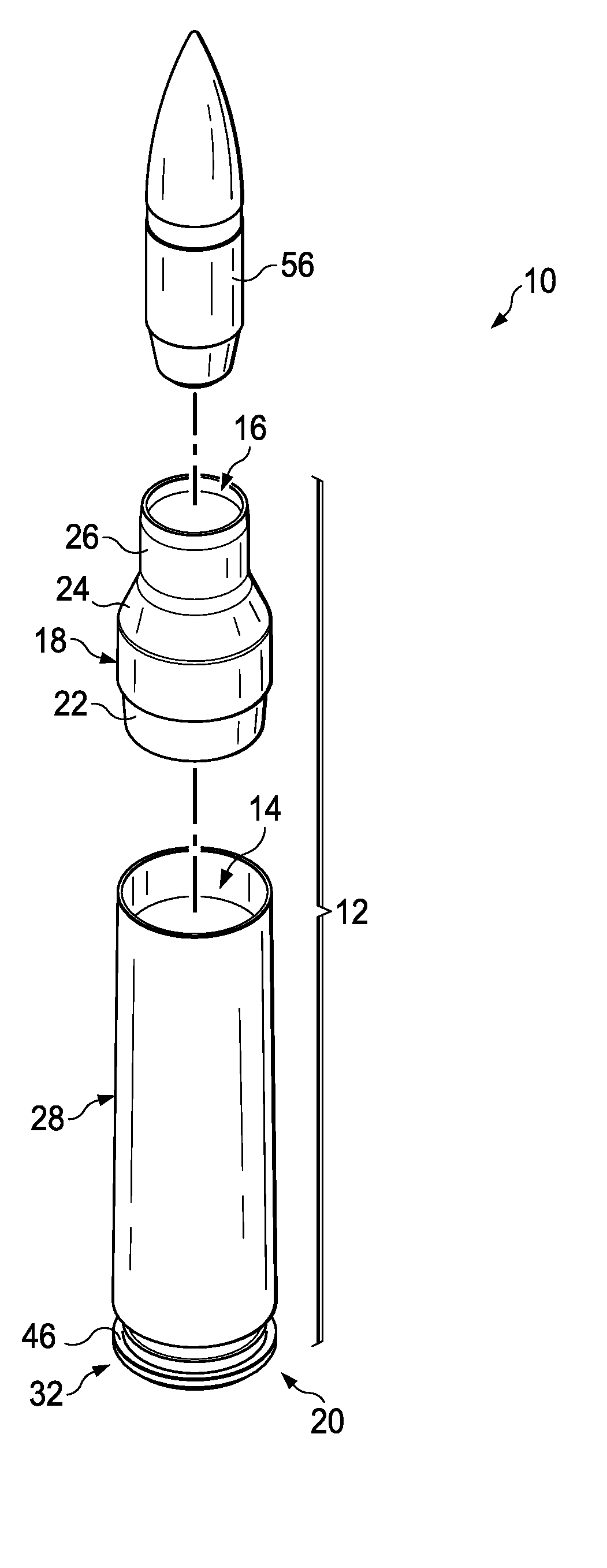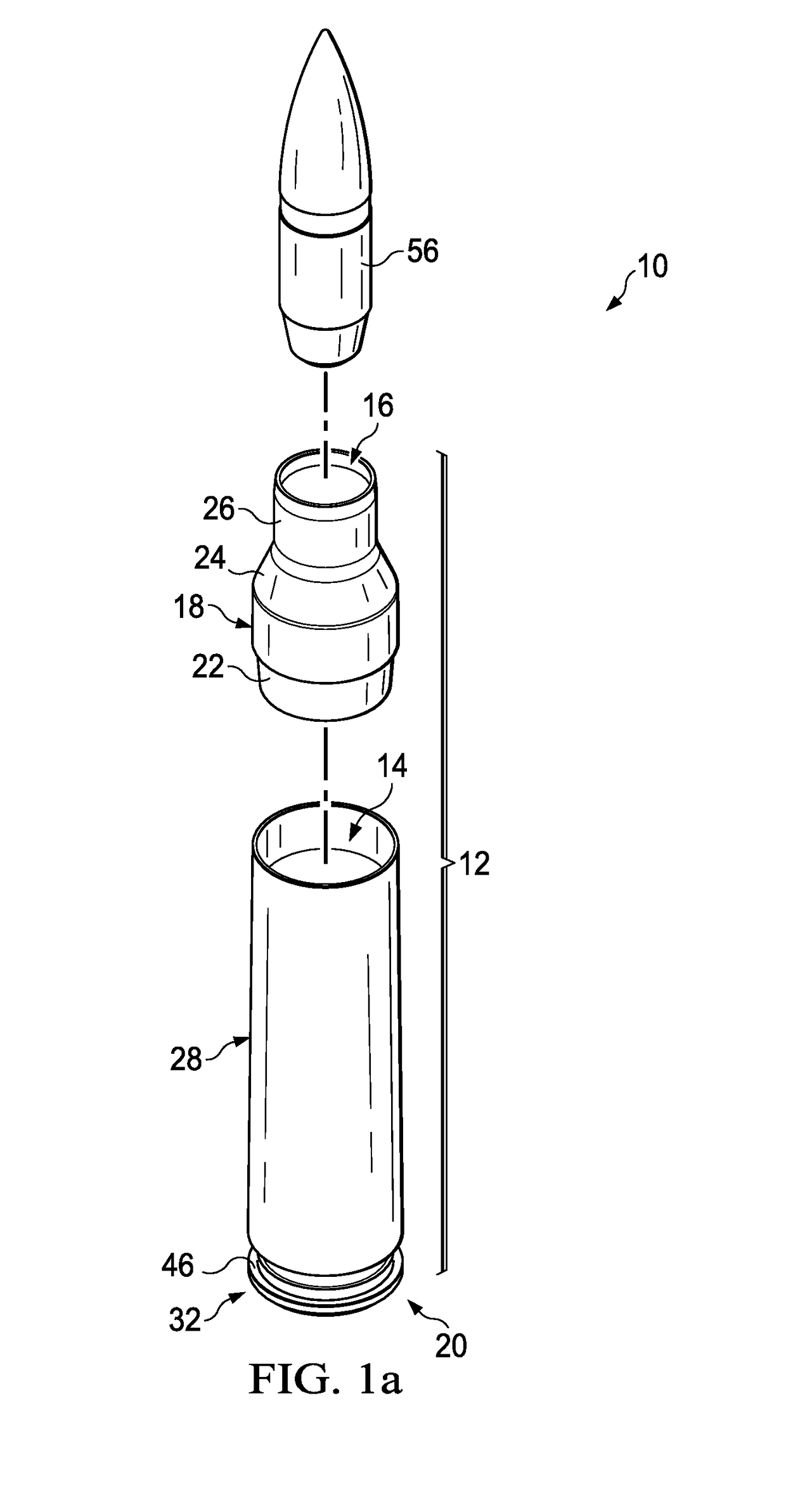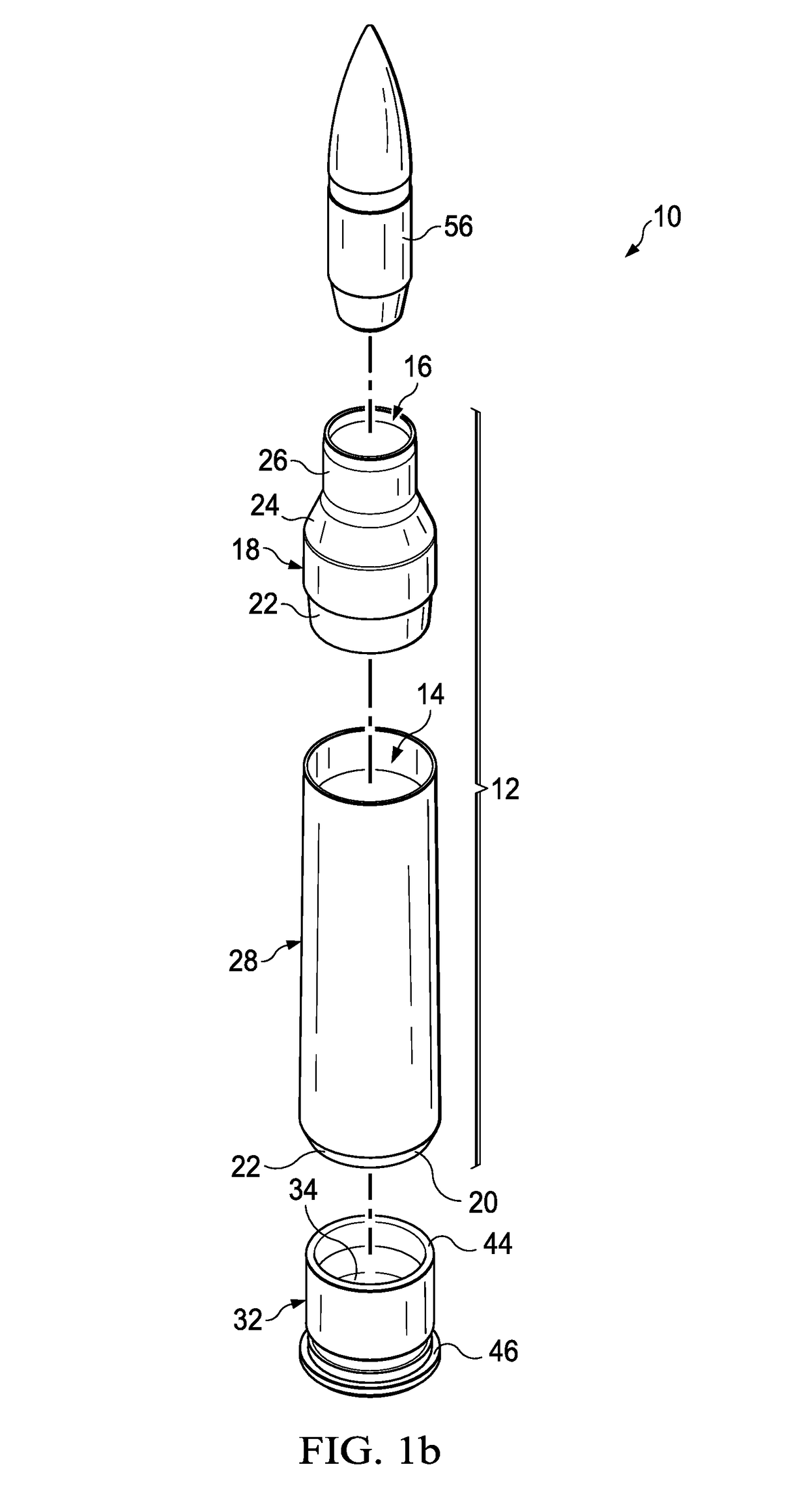Metal injection molded projectile
a metal injection molding and projectile technology, applied in the field of ammunition, can solve the problems of long manufacturing time and limit the materials that can be used to form the projectiles
- Summary
- Abstract
- Description
- Claims
- Application Information
AI Technical Summary
Benefits of technology
Problems solved by technology
Method used
Image
Examples
Embodiment Construction
[0037]While the making and using of various embodiments of the present invention are discussed in detail below, it should be appreciated that the present invention provides many applicable inventive concepts that can be embodied in a wide variety of specific contexts. The specific embodiments discussed herein are merely illustrative of specific ways to make and use the invention and do not delimit the scope of the invention.
[0038]As used herein the term “shell,”“bullet” and “projectile” are used interchangeably and denote a projectile that is positioned in an ammunition cartridge until it is expelled from a gun, rifle, or the like and propelled by detonation of a powdered chemical propellant or other propellant that may be non-powdered, solid, gaseous or gelatin. And includes payload-carrying projectiles contains shot, an explosive or other filling, though modern usage sometimes includes large solid projectiles properly termed shot (AP, APCR, APCNR, APDS, APFSDS and proof shot).
[003...
PUM
| Property | Measurement | Unit |
|---|---|---|
| thickness | aaaaa | aaaaa |
| thickness | aaaaa | aaaaa |
| thickness | aaaaa | aaaaa |
Abstract
Description
Claims
Application Information
 Login to View More
Login to View More - R&D
- Intellectual Property
- Life Sciences
- Materials
- Tech Scout
- Unparalleled Data Quality
- Higher Quality Content
- 60% Fewer Hallucinations
Browse by: Latest US Patents, China's latest patents, Technical Efficacy Thesaurus, Application Domain, Technology Topic, Popular Technical Reports.
© 2025 PatSnap. All rights reserved.Legal|Privacy policy|Modern Slavery Act Transparency Statement|Sitemap|About US| Contact US: help@patsnap.com



